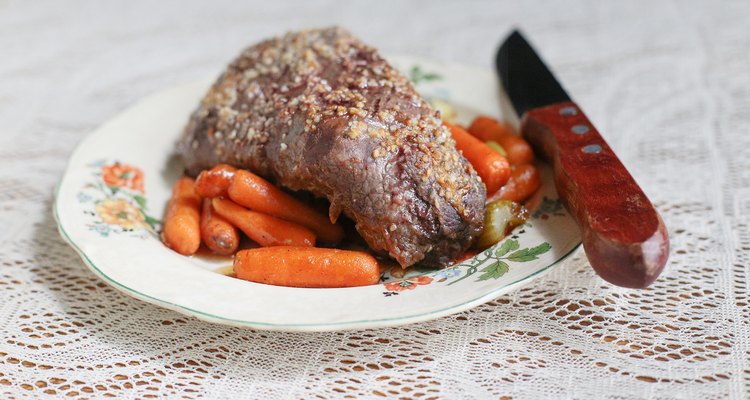
A delicious, tender beef roast ranks high on many lists of comfort foods. But sometimes a roast comes out of the oven tough, dry and flavorless. Lessen the risk of this culinary disappointment by marinating the meat ahead of time. You can even transform the used marinade into a tasty sauce -- just be sure to thoroughly boil it first, after it comes into contact with the raw meat.
Effects of a Marinade
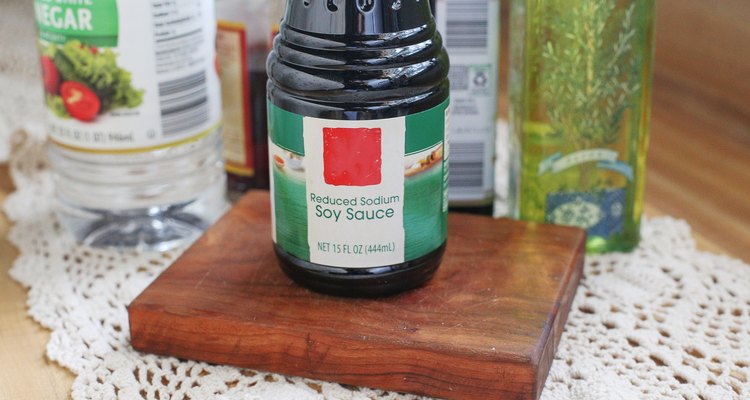
Although roasts don't require marination, it can enhance the flavor and texture of the meat. Particularly with less expensive cuts, an effective marinade breaks down tough connective fibers, leading to a more tender result. The right blend of spices and liquids, meanwhile, season the roast. Including a salty element in your marinade, such as soy sauce or flavored salt, helps the beef retain its flavorful juices as it roasts. Marinate a roast overnight in a tightly sealed container or a large resealable plastic food-storage bag, turning the meat in the liquid occasionally so it marinates evenly.
Traditional Ingredients
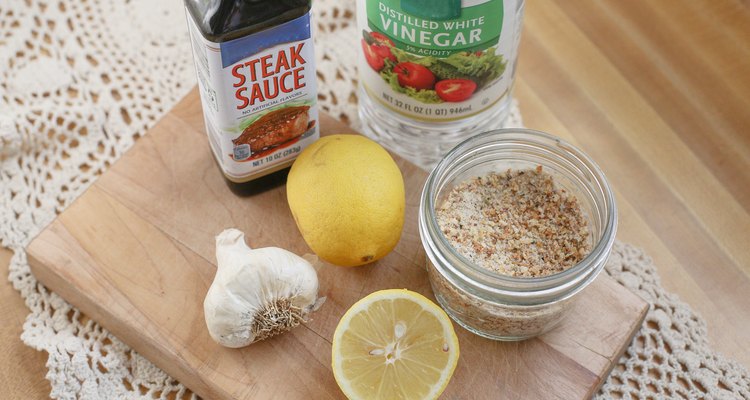
Standard marinades consist of approximately equal parts of an acidic liquid, aromatic seasonings and cooking oil. The acidic liquid cuts through the meat's tough surface; lemon or orange juice and vinegar are traditional choices. For a simple marinade, blend an acidic liquid with Worcestershire or steak sauce, cooking oil, and salt and pepper. Add onion or garlic salt for even more flavor. Whisk all of the ingredients until they are well-blended. Marinate the roast in the mixture for at least several hours but not longer than 8 hours or your meat might turn mushy.
International Flavors
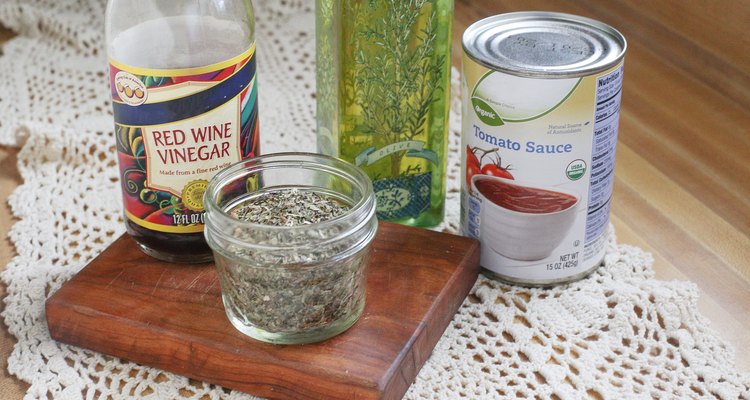
Change up the ingredients in your marinade for a roast with a regional or ethnic flair. Add tomato juice, chopped green peppers, oregano, basil and garlic salt to red wine vinegar and olive oil for an Italian-inspired roast. A blend of cumin, cayenne pepper, lime juice and onion salt add a south-of-the-border taste; include a dash of hot pepper sauce in your marinade to make it spicier. For an Asian-inspired beef roast, use pineapple juice or yogurt as your marinade base and blend it with ginger, mustard, green peppercorns, soy sauce and Chinese five-spice powder or saffron.
Sweet and Sour Options
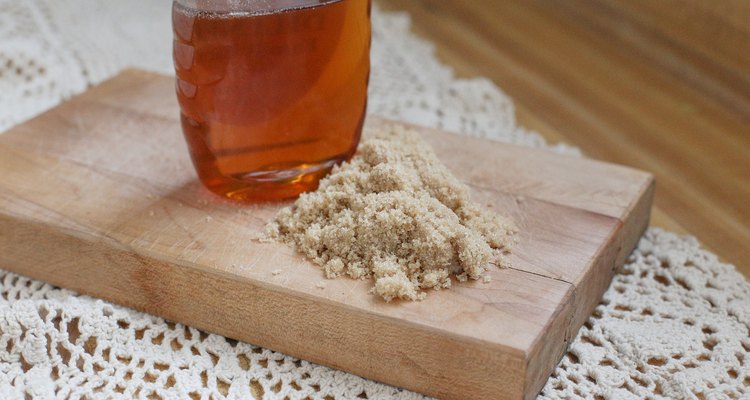
Making your own marinade allows you to experiment with non-traditional flavors, such as adding sweetness to the beef. Honey or brown sugar lends an unexpected sweetness, and the brown sugar helps the meat turn brown during cooking. Mix the honey with lemon juice and chili sauce for a zesty sweet and savory option. Cinnamon, orange juice, a garlic-pepper seasoning blend and cooking oil creates a subtle blend of flavors for a more delicate result.
Related Articles

The Secret to Tender, Juicy Pork Roast

How to Make a Juicy Pork Tenderloin
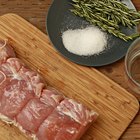
How to Brine Pork Roast

How to Cook Corned Beef Without Being ...
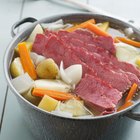
How to Slow Cook a Joint of Beef

How to Marinate a Top Round Roast

Good Marinade for a Chicken & Steak ...

How to Cook Pork Hamonado

How to Brine a Smoked Beef Brisket
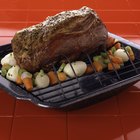
How to Marinate Beef Roast to Make ...

How to Cook Boneless Country Spare Ribs

Cooking a Pot Roast in a Clay Pot

How to Use Leftover Marinade in Gravy

How to Cook Stew in a Slow Cooker
How to Slow Cook a Pot Roast With Beef ...

How to Inject a Brisket
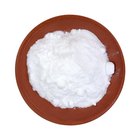
How to Get Rid of the Acid Taste in ...

How to Make a Blackbuck Antelope Roast
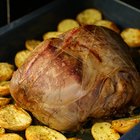
How Long Can You Freeze a Roast?
How to Use Vinegar to Cook Pot Roast
References
Writer Bio
As a national security analyst for the U.S. government, Molly Thompson wrote extensively for classified USG publications. Thompson established and runs a strategic analysis company, is a professional genealogist and participates in numerous community organizations.Thompson holds degrees from Wellesley and Georgetown in psychology, political science and international relations.
Photo Credits
Sarah Vantassel/Demand Media